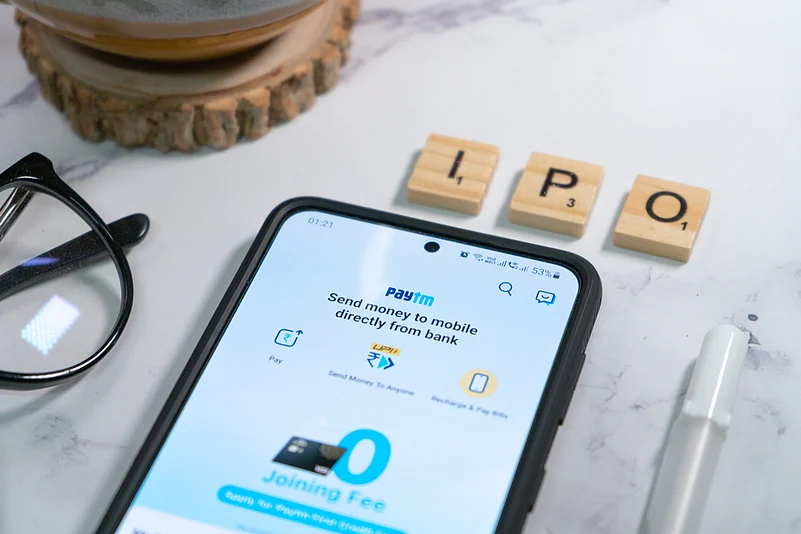Paytm-owner One97 Communications, a digital firm, which opened its initial public offering (IPO) for subscription on November 8, saw a retail subscription of 78 per cent on the first day. But?subscription to its $2.5 billion initial share offering?was?comparatively on a sluggish phase on the second day.?Retail investors are individuals or NRIs who apply for up to Rs 2,00,000 in an IPO.
Paytm IPO: Is It A Prudent or Pricey Buy?
Rs 18,300 crore Paytm IPO open for subscription at a price band of Rs 2,080-2,150 per share. Should you subscribe?

Out of the total, the fresh issue is worth Rs 8,300 crore and the offer for sale is Rs 10,000 crore. This is going to be the biggest IPO in terms of size if is successful in its bid. Before this, state-owned public-sector unit (PSU) Coal India raised Rs 15,200 crore in 2010.
The price band for the IPO has been fixed at Rs 2,080-2,150 per share. The shares of the company are expected to list on the BSE and NSE on November 18, though the listing date has not yet been announced.
Here is how you should approach the IPO.
Rising Reach
Paytm is India's leading digital payment service platform and has a strong brand identity. The company offers consumers and merchants, technology-led, easy-to-use digital product and services as well as easy and inclusive access to financial services.
A huge customer base with 333 million total customers, 114 million annual transacting users, and 21 million registered merchants work in favour of the company.
The company has the largest payments platform in India with a gross market value of Rs 4,033 billion in financial year 2021. It also has an overall mobile payments transaction volume market share of approximately 40 per cent and wallet payments transaction market share of 65 -70 per cent in India as of FY21.
Riding on Digital Wave
The company is riding on the wave of digitization and caters to both buyers and sellers. Paytm’s two-sided (consumer and merchant) ecosystem, leveraged by technology wirjs for it. “Leveraging the large scale, reach, and deep and high-frequency engagement by consumers and merchants on the payments platforms, it has been able to add new payments offerings, as well as expand into commerce and cloud services and financial services. Each of its offerings increases the scope of the ecosystem for consumers and merchants, enhancing the value of the ecosystem,” according to a report by Asika Stock Broking, a broking firm.
India is a country of hundreds of millions of young and aspiring consumers who are underserved in payments and financial services products. There are millions of small businesses in India that would benefit from having increased access to affordable software, technology and financial services. These consumers and small businesses can be served through technology-led, digital-first commerce. “Paytm has a large addressable market in India. The market segments that they serve have large growth potential, due to significant under-penetration, and the ability of technology to grow the market,” says Asika’s report.
Is it highly priced?
“At the upper end of the price band, Paytm is valued at 49.7-times its FY21 revenues. While valuations may appear to be expensive, Paytm has become synonymous with digital payments through mobile and is the market leader in the mobile payment space,” writes Jyoti Roy, an analyst from AngelOne, in a report by the brokerage firm.
“Patym is well positioned to benefit from the exponential five-times growth in mobile payments between FY2021 and FY2026 and, hence, we believe that the valuations are justified,” he adds. AngelOne recommends investors to subscribe to the issue.
An ICICI Direct report did not assign any rating to this IPO. “One 97 Communication (Paytm) is a play on digitisation of various financial services including payments, investments and financial solutions. At the upper end of the price band, the company is valued at about 9.5 times post issue BV and at 24 per cent of annualised GMV,” reads the ICICI Direct Report.
The company has a history of net losses and negative cash flows in prior years. However, it has meaningfully reduced its costs over the years. A major part of this cost reduction is on the back of lower cashback and incentives. Investors may take investment decisions keeping all the factors in mind.

























